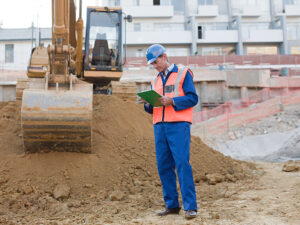
Importance of a Clean Construction Site: The Role of Pavement Sweeping
Construction sites are known for being noisy, dusty, and congested places that require a lot of coordination and careful planning. However, the importance of keeping construction sites clean and free of debris is often overlooked. Not only is cleanliness essential for the safety of workers and visitors, but it is also necessary to comply with federal regulations. In this article, we will discuss the role of pavement sweeping in maintaining a clean construction site. Complying with Federal Regulations Under the Clean Water Act of 1972, construction sites are required to have a Stormwater Pollution Prevention Plan (SWPPP) in place to prevent erosion and minimize the discharge of pollutants into nearby waterways. Pavement and street sweeping are considered a best management practice (BMP) that can help construction sites comply with SWPPP regulations. Sweeping helps remove sediment and pollutants from the site before they can be transported off the property and into nearby waterways. By reducing the amount of dirt and debris that leaves the construction site, sweeping can also help construction companies avoid costly fines and legal action from regulatory agencies. Track Out Control Track out occurs when dirt, gravel, or other construction materials are transported from a construction site to





